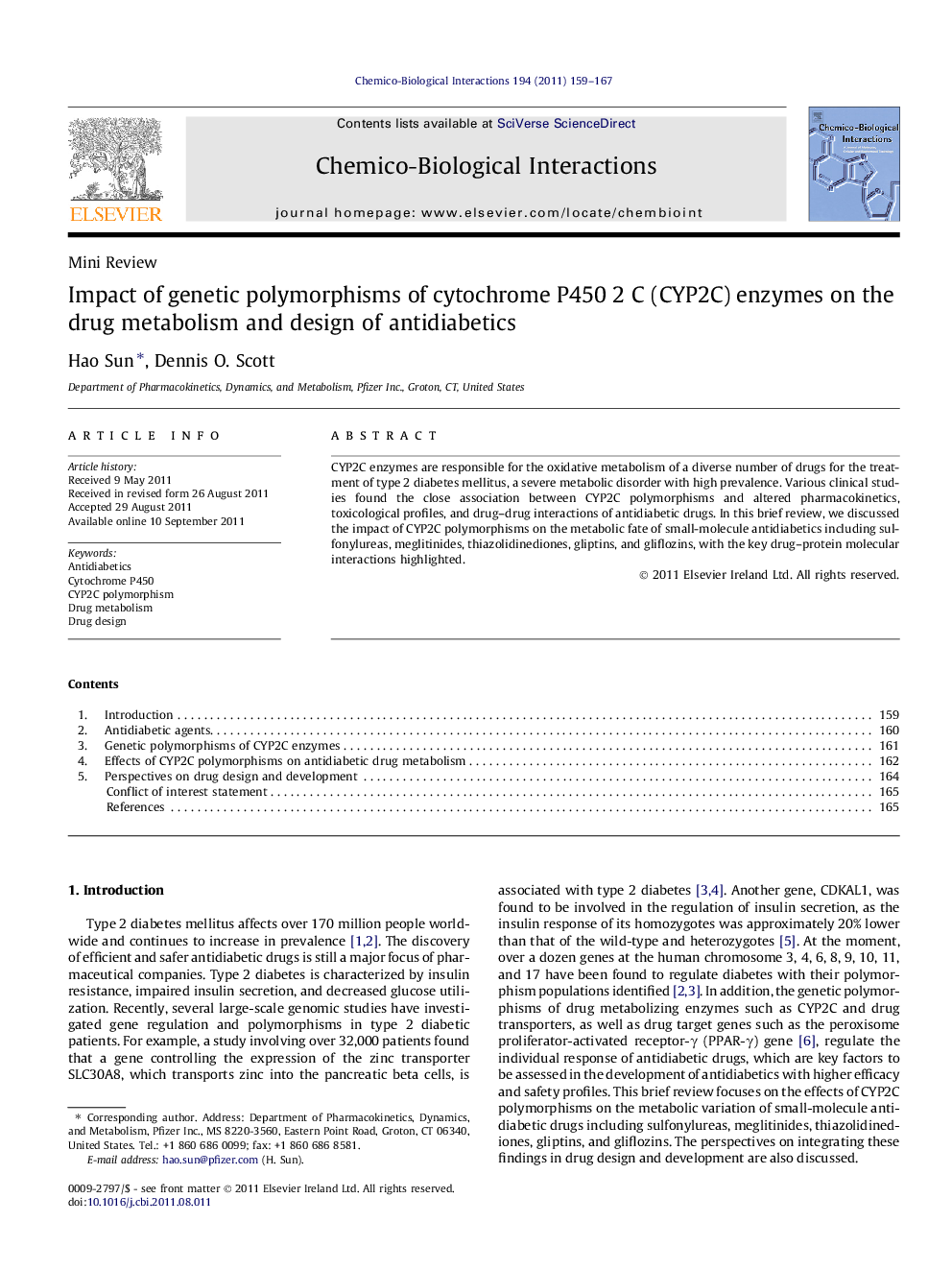| Article ID | Journal | Published Year | Pages | File Type |
|---|---|---|---|---|
| 2580882 | Chemico-Biological Interactions | 2011 | 9 Pages |
CYP2C enzymes are responsible for the oxidative metabolism of a diverse number of drugs for the treatment of type 2 diabetes mellitus, a severe metabolic disorder with high prevalence. Various clinical studies found the close association between CYP2C polymorphisms and altered pharmacokinetics, toxicological profiles, and drug–drug interactions of antidiabetic drugs. In this brief review, we discussed the impact of CYP2C polymorphisms on the metabolic fate of small-molecule antidiabetics including sulfonylureas, meglitinides, thiazolidinediones, gliptins, and gliflozins, with the key drug–protein molecular interactions highlighted.
► We review the impact of CYP2C polymorphisms on the metabolic fate of antidiabetics. ► We focus on sulfonylureas, meglitinides, thiazolidinediones, gliptins and gliflozins. ► Key antidiabetics-CYP2C molecular interactions are highlighted.
